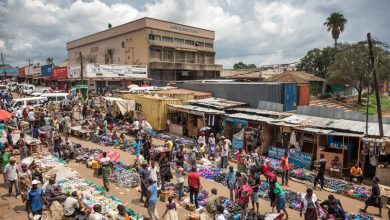Commonwealth urges fairer global finance
The Commonwealth Secretariat has urged member states to advocate for a fairer and more inclusive global financial system that provides affordable and sustainable financing for vulnerable economies.
The appeal comes ahead of the Commonwealth Finance Ministers Meeting on 13 October in Washington, held alongside the International Monetary Fund (IMF) and World Bank Annual Meetings.

Dr Thomas Munthali, Head of Economic Policy and Small States at the Commonwealth Secretariat and former Director General of the National Planning Commission, said the world could no longer afford to treat resilience as a mere slogan. He described it as a survival imperative for small states grappling with mounting debt, climate shocks, and limited access to concessional finance.
“The Commonwealth is well positioned to champion reforms of the global financial architecture that are inclusive, equitable and responsive to the realities of small and vulnerable states,” said Munthali.
“Our collective voice must advocate for a financial system that ensures timely, affordable and sustainable development finance.”
Munthali argued that reforming the international financial system demands both domestic and global action. He cited the need for debt-for-resilience swaps, modernised tax systems, and stronger domestic revenue mobilisation through digital innovation and anti-corruption reforms. He noted that the bloc’s shared institutions and lower intra-Commonwealth trade costs—projected to reach $2 trillion by 2030—provide a solid foundation for growth if coupled with fairer access to global capital.
He added that Commonwealth nations must balance debt management with investment in green industries, digital economies and regional value chains that empower women and youth. Initiatives such as the Commonwealth Meridian platform, he said, could enable member states to enhance transparency, strengthen debt management and attract responsible investment.
While Munthali’s article outlined a Commonwealth roadmap for inclusive resilience, the IMF’s latest outlook, released days later, echoed many of the same concerns. IMF Managing Director Kristalina Georgieva warned that global growth remains subdued, saying the world economy is performing “better than feared, but worse than we need.”
She observed that uncertainty has become the new normal, with public debt projected to exceed 100 percent of global GDP by 2029 and fiscal buffers rapidly eroding. Georgieva noted that the world’s capacity to withstand shocks has improved since the pandemic, largely due to stronger policy fundamentals across many emerging economies. However, she cautioned that resilience has yet to be fully tested and urged countries to preserve trade as a driver of growth amid rising protectionism.
“Good policy makes a difference,” she said, calling for governments to strengthen monetary and fiscal frameworks, reinforce governance and invest in long-term productivity.
The IMF chief noted that many countries face difficult choices between restoring public finances and maintaining social spending. She warned that loose financial conditions and growing optimism around artificial intelligence could be masking underlying fragilities that may quickly unravel if investor sentiment shifts.
Munthali’s argument for reform resonates amid this global uncertainty. Both he and Georgieva agree that growth and resilience hinge on credible policies, sound fiscal management and coordinated international action. Yet while the IMF emphasises discipline and consolidation, the Commonwealth advocates fairness—seeking a system that enables small states to thrive rather than merely survive.
The forthcoming Washington meeting is expected to explore practical mechanisms for scaling up climate and development finance, enhancing debt sustainability and improving access to concessional resources. For Munthali, these are not abstract discussions but urgent priorities for countries such as Malawi, which sit at the intersection of vulnerability and ambition.





